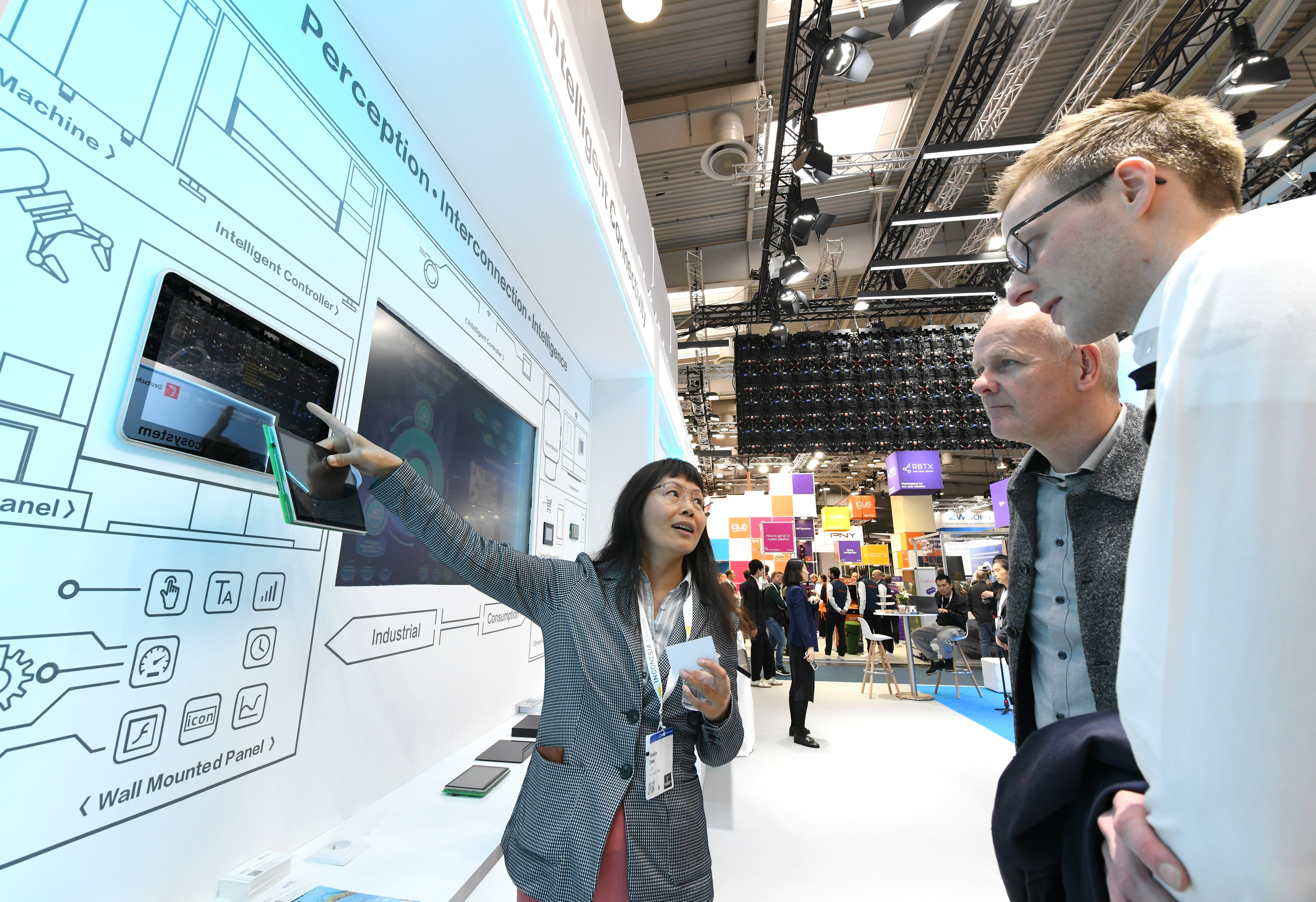Customers buy into high-tech consumption
THE ARTICLES ON THESE PAGES ARE PRODUCED BY CHINA DAILY, WHICH TAKES SOLE RESPONSIBILITY FOR THE CONTENTS

Zhang Jing, 33, a middle-school teacher from Taiyuan, Shanxi province, recently sent a customised air conditioner as a birthday gift to her calligraphy-loving father when a scorching heat wave hit many parts of North China.
With just a few taps on her mobile phone, she chose the functions, appearance and design her father likes.
Zhang said that once she placed the order with home-appliance manufacturer Haier Group, the company began making the air conditioner, which also had her father’s favourite phrase Tian dao chou qin, or God rewards the diligent, embossed on it.
“My father liked this birthday gift so much that he invited his friends over for a look. The price of this personalised air conditioner was about 150 yuan [£16] higher than a regular one with similar functions,” she said.
Zhang is among the growing group of Chinese consumers who are driving surging demand for customised commodities and who want to have a bigger say in the design, features and functions of products.
Demand for these new products is being met by cutting-edge digital technologies that are reshaping the operations and strategies of Chinese manufacturers and online retailers.
Industry experts said the days when consumers are solely passive buyers are over, with next-generation information technologies creating new intelligent and green consumer goods and fostering fresh consumption growth areas.
“The new consumer model, which centres on consumers’ requests and places an emphasis on personalised, tailor-made and experience-based consumption, will play an important role in expanding domestic demand and taking the lead to promote the recovery of China’s economy,” said Hong Yong, an associate research fellow at the e-commerce research department of the Ministry of Commerce’s research institute.
This revolutionary approach is being made possible by the industrial internet – a new type of manufacturing automation that combines advanced machines, internet-connected sensors and big-data analysis. The new approach is also bolstering the transformation and upgrading of the traditional manufacturing sector.
The Haier Group has built an industrial internet platform, COSMOPlat, which allows enterprises to customise products quickly, and at scale, by collecting and analysing data from consumers, suppliers and factories with internet-connected information sensors. The new process also boosts productivity and cuts costs.
Customers can choose the functions, appearance and design of home appliances by using their mobile phones, removing the need to visit a bricks-and-mortar sales store.
Once a customer has placed an order, intelligent manufacturing equipment at Haier’s interconnected factories automatically reads the information and starts production of the tailor-made item, the company said.
China’s industrial internet sector has developed rapidly in recent years. According to the Ministry of Industry and Information Technology, China has developed more than 240 industrial internet platforms that have strong regional and industry influence. More than 81 million industrial equipment units are connected to the platforms, which serve 250,000 enterprises covering over 40 key industries.
To meet consumers’ growing and diverse demand for products, a string of e-commerce platforms have launched tailor-made and new products in collaboration with consumer-goods brands.
E-commerce company JD is betting big on the consumer-to-manufacturer, or C2M, model, which leverages online retailers’ big data and customer analysis to customise products that meet consumers’ demands.
The C2M products represent the latest consumption trends, as they are designed based on what consumers want, the company said. For instance, using data analysis of online searches and comments, JD found that users often searched for specific keywords such as “nappy rash”, and looked for nappies that featured better skin care.
Based on big data and consumer preferences, the company cooperated with a baby nappy brand to jointly develop new paper nappies with enhanced aeration and softness that are more comfortable for babies to wear. The new product accounted for more than 70 per cent of the brand’s sales on JD the day it went on sale.
Guan Lixin, deputy director of the Distribution and Consumption Institution at the Chinese Academy of International Trade and Economic Cooperation, said, “The new consumption model will continue to evolve with the in-depth application of new technologies such as 5G, cloud computing and artificial intelligence, mainly driven by a new round of technological revolution.”

Bookmark popover
Removed from bookmarks